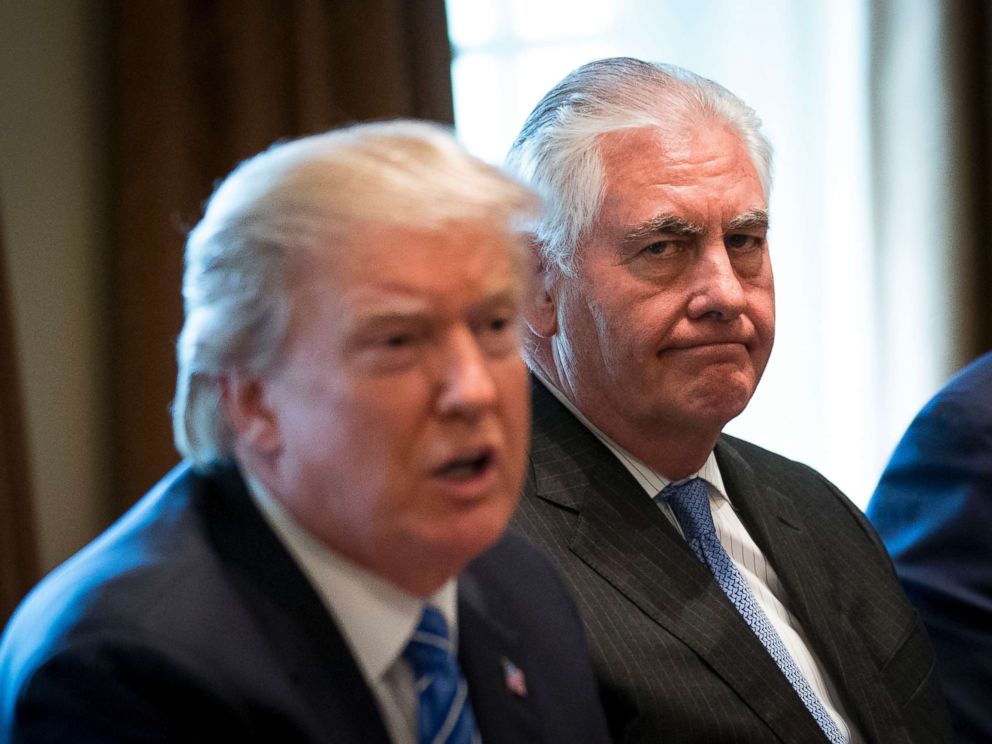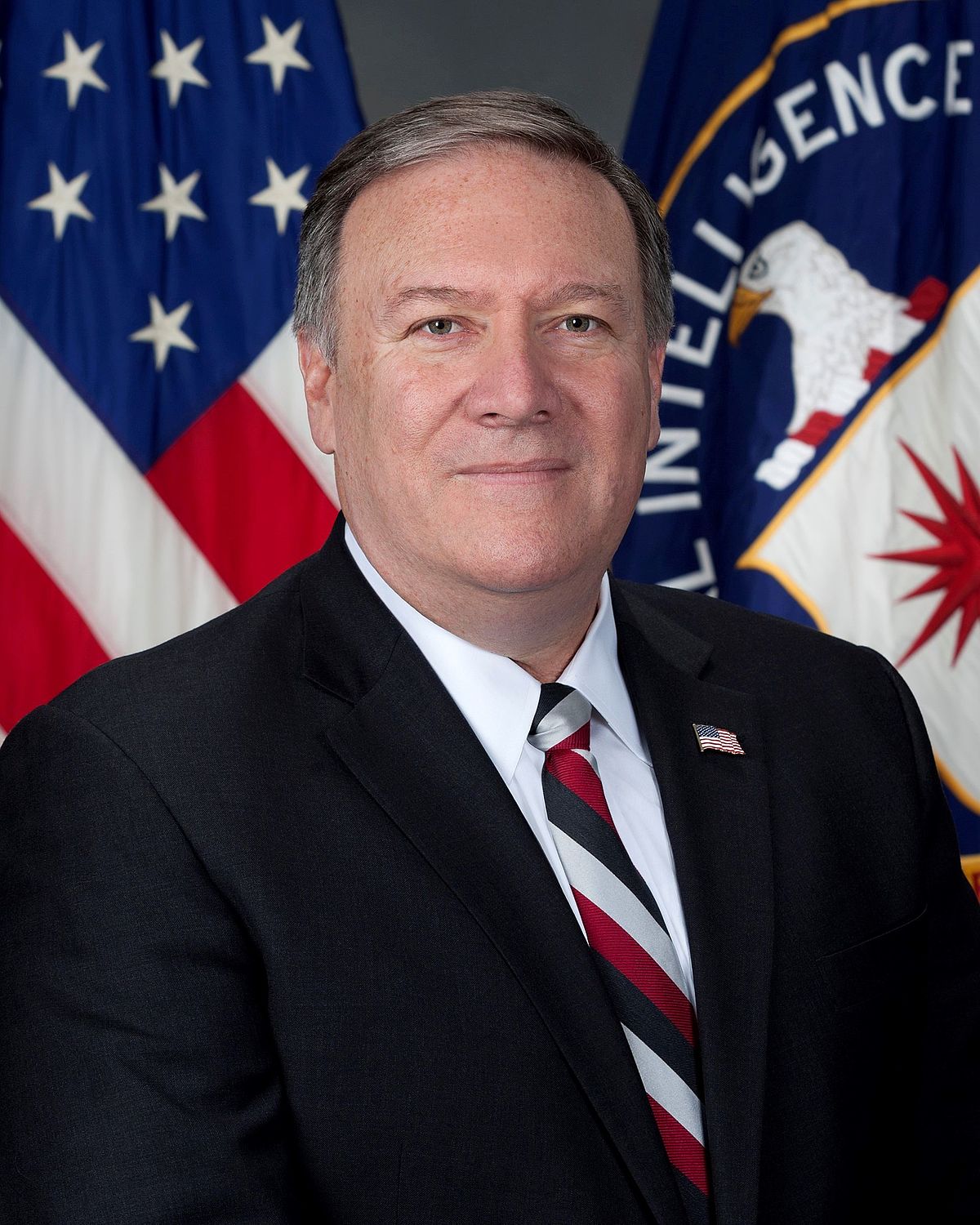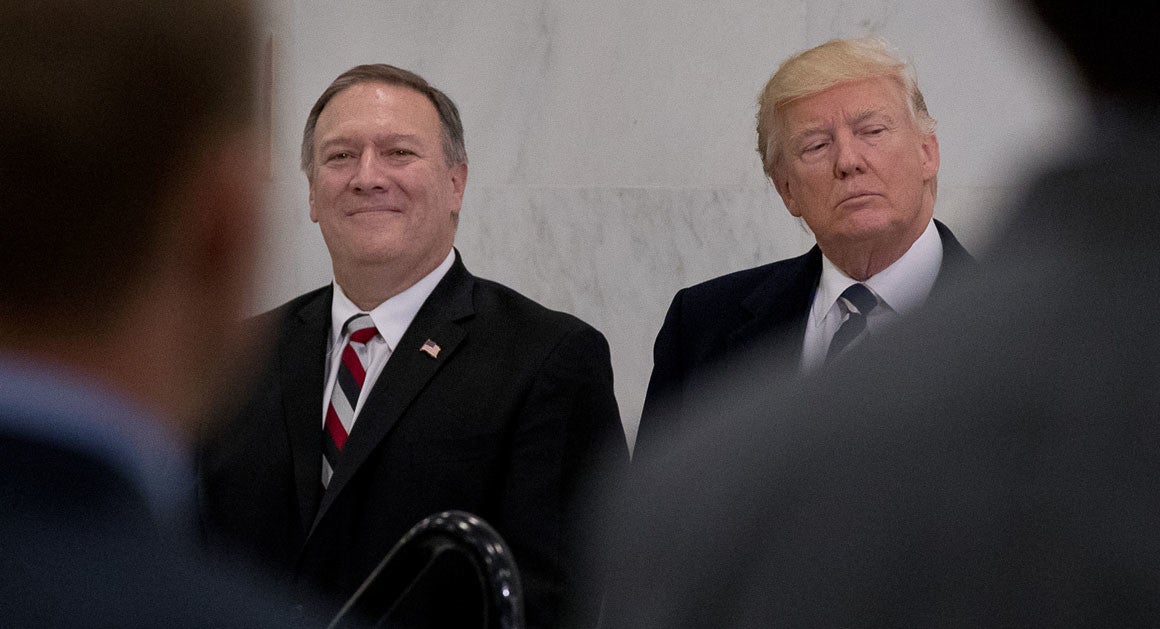
On March 13, 2018, President Donald Trump announced on Twitter his nomination of CIA Director Mike Pompeo as the new Secretary of State. Pompeo will replace Rex Tillerson, who was removed by Trump following a year of frequent disagreement between the two. Tillerson’s term officially ends on March 31, 2018.
The switch-up comes at a critical time for U.S. foreign relations. In the week prior to his announcement, Trump imposed new tariffs on steel imports and agreed to face-to-face negotiations with North Korean leader Kim Jong Un for the first time. Members of the SFS community share their thoughts on what Tillerson’s replacement means for American foreign policy going forward.
Seeing Eye-to-Eye
Ambassador Barbara Bodine, director of the Institute for the Study of Diplomacy, speculated on the cause for Tillerson’s dismissal, noting that he and Trump often did not see eye-to-eye on important foreign policy issues. “I think this is tied to North Korea and possibly the sanctions actions – which Tillerson opposed….actually, so many policies,” Bodine told ThinkProgress.

In contrast, Pompeo appears poised to support Trump’s foreign policy, even on controversial issues, according to Professor Daniel Byman who spoke with NPR.
“I do think that Pompeo is likely to do better than Tillerson in terms of having some degree of harmony with the White House,” Byman said. “It was often jarring and remarkable to see how out of step the president and his secretary of state were.”
However, Paul Pillar, Non-Resident Senior Fellow at the Center for Security Studies, noted the danger of Pompeo’s close alignment with Trump in an editorial for The New York Times.
“Until today, Rex Tillerson has been one of the ‘adults’ in the administration whose main contribution has been to restrain Donald Trump’s bad impulses,” Pillar wrote. “Mr. Tillerson’s replacement seems set to encourage them.”
Pompeo Brings A Different Perspective
 Pompeo will arrive at the State Department from his current role as CIA Director. Previously, he served as a member of the United States House of Representatives from Kansas between 2011 and 2017. On negotiations between the U.S. and Iran, Byman noted that Pompeo might need to shift his thinking if he wants to accomplish anything.
Pompeo will arrive at the State Department from his current role as CIA Director. Previously, he served as a member of the United States House of Representatives from Kansas between 2011 and 2017. On negotiations between the U.S. and Iran, Byman noted that Pompeo might need to shift his thinking if he wants to accomplish anything.
“Pompeo is likely to come in with the CIA and congressional perspective that the Iran deal was a bad deal,” Byman said. “But it doesn’t solve the bigger problem of what’s going to replace it. And as secretary of state, if he wants to accomplish anything, he’s going to have to come up with an answer to that.”
According to Pillar, a 28-year veteran of the CIA, the transition from CIA director to secretary of state is unprecedented. “No other official has made that particular transition before, although a couple of former CIA directors have become secretary of defense,” Pillar told Voice of America.
Pompeo, unlike his predecessors at the agency, has taken a far more partisan stance and advocated for hawkish policies during his time as director.
“Pompeo has been far more of a policy advocate, and a political defender of the president, than is appropriate for an intelligence chief,” Pillar told VOA. “Whether this move is good or bad for the Department of State or for U.S. diplomacy, it is better that Pompeo be in a policy-making job rather than the CIA job.”
Shifting Policy
Pillar analyzed each of Pompeo’s stances on major foreign policy issues in his op-ed. Pillar says Pompeo as Secretary of State “would reinforce Mr. Trump’s more destructive inclinations” on topics ranging from climate change to North Korea.

Pillar believes that Pompeo’s vehement opposition to the Iran nuclear agreement is dangerous. “Iran is the single issue where the change from Mr. Tillerson — who helped to restrain Mr. Trump’s urge to kill the nuclear agreement — to Mr. Pompeo is most likely to have a serious and destructive impact on policy,” Pillar wrote.
However, in contrast, Professor Angela Stent believes that U.S. foreign policy is not likely to shift much as a result of this change.
“I would say that [Pompeo] would be more ‘Trumpian’ in most of the policy,” Stent told Valdai Club. “It seems to me that there will not be very much change in the policy that is now.”
Elliot Abrams, Andrew H. Siegal Professor in American Middle Eastern Foreign Policy at the Center for Jewish Civilization, told NPR that a policy impact is “possible.”
“Rumor is that Pompeo was harder-line on some things, closer to the president’s tougher line, for example, on Iran and the JCPOA, whereas Secretary Tillerson was – took a more traditional, you might say, establishment view, a more Department of State view,” Abrams said.
Diplomatic Relations

In an article from the Atlantic Council, MSFS Advisory Board Member Jeffrey Gedmin discusses the strained relationship between the U.S. and Europe, and the impact that Pompeo might have moving forward.
“In one sense, watch Pompeo and the administration on Iran this year, if you want a sense about Russia sanctions next year,” Gedmin wrote. “In another sense, are we headed toward the point where America First collides with Germany and EU first?”
Arsalan Iftikhar, Senior Fellow at Georgetown’s Bridge Initiative, wrote an op-ed for NBC News THINK blog documenting Pompeo’s long history of Islamophobic comments and actions. He argues that Pompeo is unfit to lead diplomatic outreach to America’s Muslim allies.
“With Mike Pompeo’s impending ascension to secretary of state, the Donald Trump administration has made it clear that pluralistic diplomacy towards the Muslim world is not even remotely important to them,” Iftikhar wrote. “Based on his own long history of Islamophobia, Mike Pompeo is simply not fit to serve as America’s chief diplomat.”